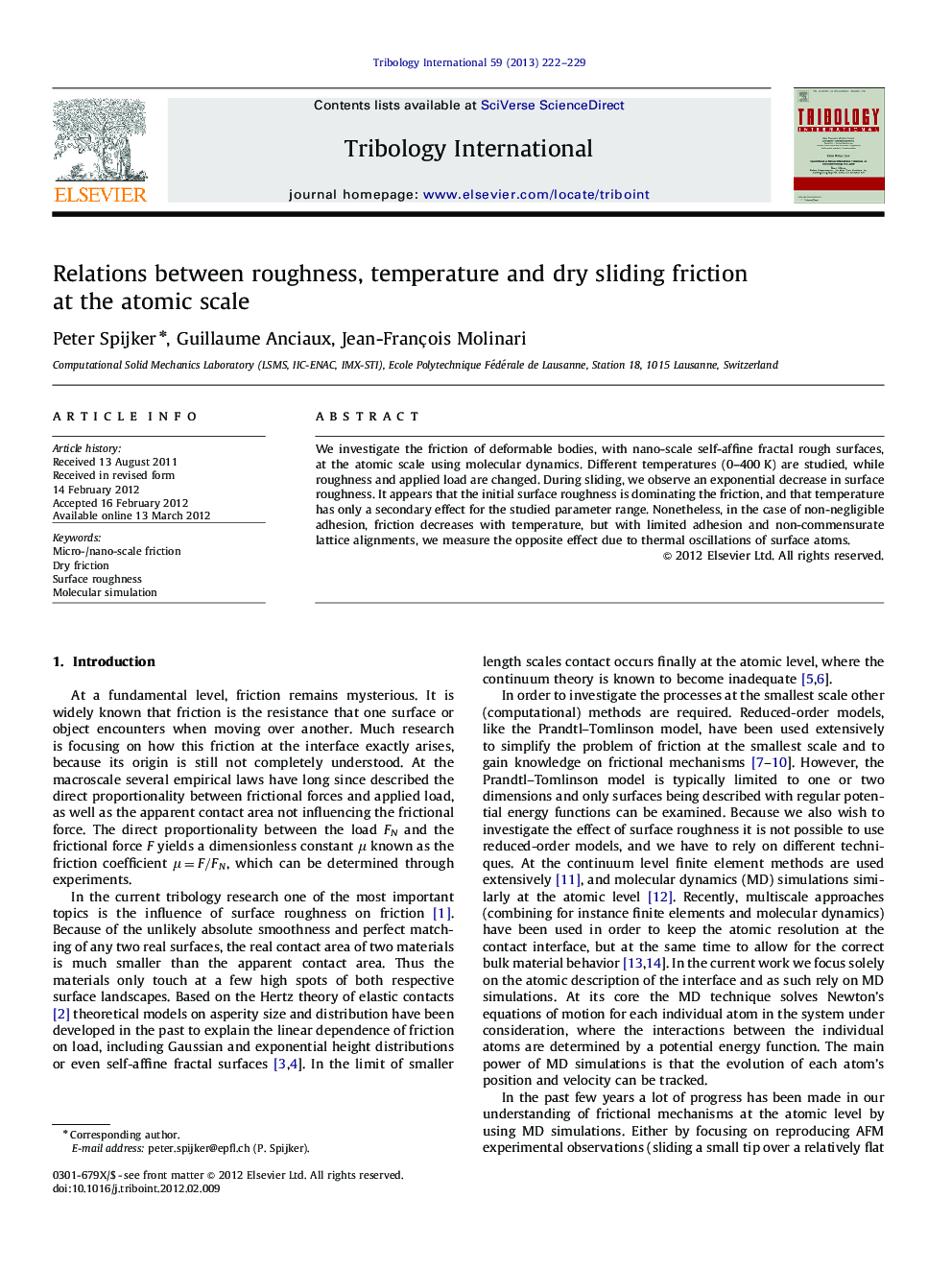| Article ID | Journal | Published Year | Pages | File Type |
|---|---|---|---|---|
| 615089 | Tribology International | 2013 | 8 Pages |
We investigate the friction of deformable bodies, with nano-scale self-affine fractal rough surfaces, at the atomic scale using molecular dynamics. Different temperatures (0–400 K) are studied, while roughness and applied load are changed. During sliding, we observe an exponential decrease in surface roughness. It appears that the initial surface roughness is dominating the friction, and that temperature has only a secondary effect for the studied parameter range. Nonetheless, in the case of non-negligible adhesion, friction decreases with temperature, but with limited adhesion and non-commensurate lattice alignments, we measure the opposite effect due to thermal oscillations of surface atoms.
► We model the friction of deformable bodies in close contact at the atomic scale. ► We investigate the influence of temperature, surface roughness and applied load. ► In the absence of adhesion and aligned lattices temperature mildly enhances friction. ► Surface roughness change shows an exponential decay depending on the temperature. ► The initial surface roughness seems to dominate friction more than temperature.
